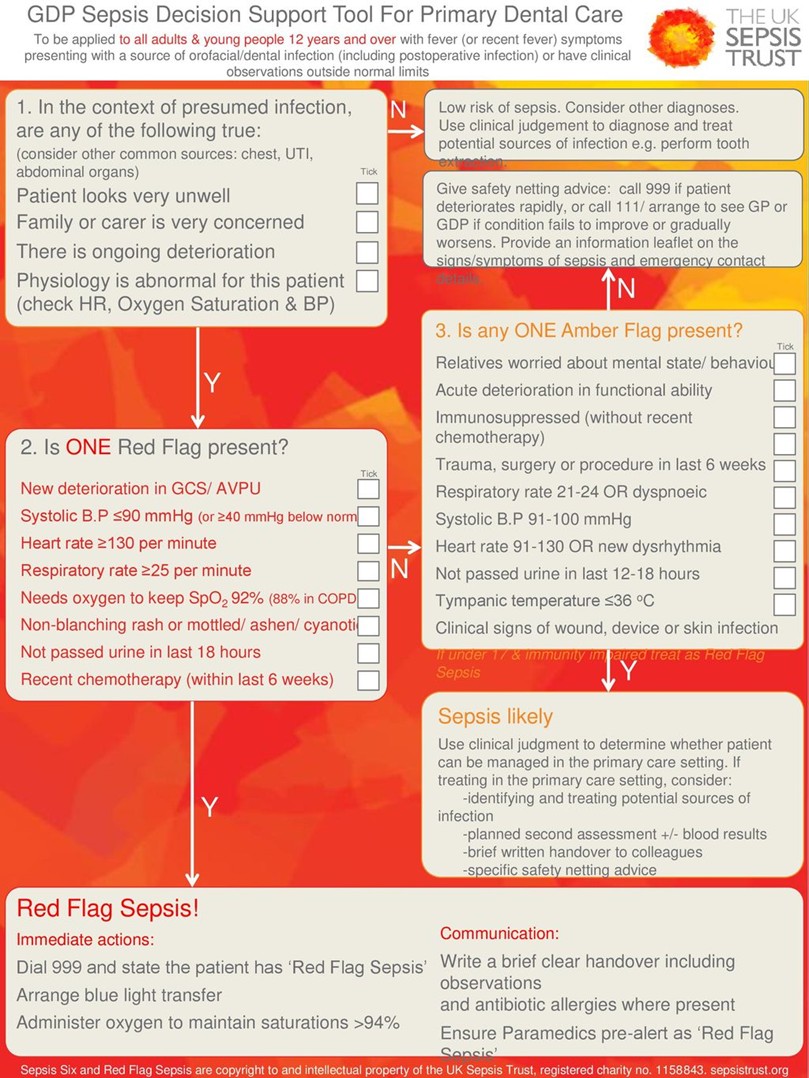Antibiotic prescribing
When to prescribe antibiotics

Broadly, antibiotics may be prescribed for dental problems: -
- To help manage a small proportion of acute or chronic infections which cannot be managed by other (local) measures alone. This is normally when a dentally related infection spreads to the surrounding tissues, or the bloodstream – i.e. it does not remain localised. One still applies the local measures (like providing drainage, removing the cause) – the antibiotics are an adjunct
- When treatment needs to be referred or deferred, antibiotics may help to prevent an infection getting worse, or provide temporary relief, while waiting for the referral appointment.
Is there a danger of sepsis?
Dentists must consider the possibility of sepsis whenever patients present with oral/facial infection. The NHS recommends using the Sepsis trust flowchart.
GDC Fitness to Practice
The UK GDC has published figures for Oct, Nov, Dec 2018 of cases involving antibiotic prescribing. Nine cases were found proven (i.e. the dentist's fitness to practice was found impaired).
The majority of charges related to inappropriate antibiotic prescription, not being indicated or justified, for the patient’s presenting symptoms, like prescribing antibiotics for pulpitis. Others included not being given sufficient instruction as to how to take antibiotics, and remote prescribing without seeing the patient to assess their symptoms when this was possible.
During the COVID-19 pandemic, the GDC have repeated their advice, unmodified, as in the PDF below. Certainly remote prescribing (no examination) has become widespread. This should only be done with as full a history as possible (which may involve using a phone video call), and as good a sepsis check as one can manage.
When treatment needs to be deferred (e.g. because sedation/GA, or specialist help is needed), prescribing may be appropriate as a temporary relief measure. However, where there is no point (e.g. pulpitis) in prescribing, it could rightly be seen as an FTP issue, in the light of it contributing to the antimicrobial resistance disaster (i.e. the risk of sensitisation, hypersensitivity reaction, outright allergic response / anaphylaxis, and pseudomembranous colitis).
The GDC report can be seen HERE
GDC Guidance on prescribing medicines
GDC Guidance is available here (open in new window)


